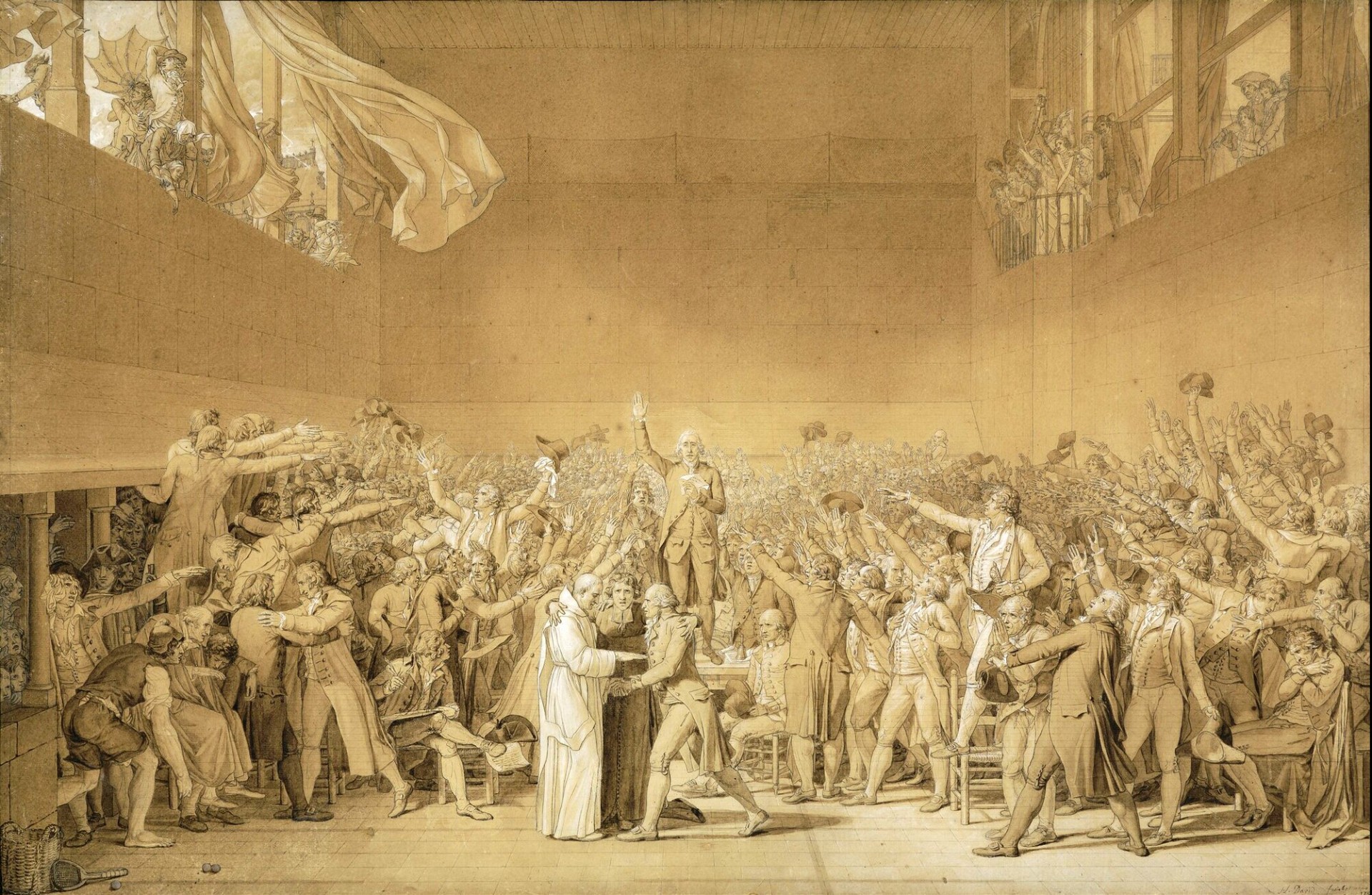When Tsveta asked if I wanted to give a little speech, I was very unsure about what to talk about. She said it could really be anything, which is a bad idea, don’t encourage me. I may drone on a bit, as my peers in Colloquium might remember, so I apologize beforehand.
I love my work, and I am immensely proud of my thesis and the recognition it received. But the history of political culture in the French Revolution is rather niche. The thesis content, on its surface, may lack the universality that we try to find in a communal celebration. We all have our niches, our passions, which helped each of us to successfully complete this program and thesis.
So I will turn away discussion from the Revolution, and instead focus on us as a collective. Mentors, peers, and scholars, all part of a liberal arts system that seems to be steadily fading. We are part of higher education in a moment of instability and uncertainty. And the isolation of the past year, divided from friends and family, only accessible through a screen, was for me a terrible thing.
The thesis process itself only compounds those feelings of isolation, which I am sure each of us have experienced in ways great and small. But academia, trapped in the bubble of research and writing, learning, feels safe, when compared to the madness of day-to-day life. For some the transition into professional life is seamless, but I imagine that given the context in which our current academic experience took place, we are all struggling to find what comes next, and how we make it work in the confines of the life we have and the life we hope for.
And I want to hope, this is a celebration! We should be joyous and rowdy, proud and full of ourselves, undefeatable in youth. Youth is fleeting, they say. And no matter how fulfilling our work may seem, that it can inspire curiosity, creativity, and thoughtful contemplation, it cannot hold us, hug us, share smiles and laughter, give love. The work is work, it is a part of our purpose, our mission as the curious, but it is not enough. And this past year or so, it's all that many of us have had to rely on, to push through.
What waits for us beyond this moment, this program, this project, is unknown. Humans know little and less, life is always uncertain. But I am certain that our work does not define us, it frees us to see the world as something of endless possibility. A thousand different experiences came before our own, and ours will be the thousandth and first. I believe in all of us, as scholars, but more importantly, as people, peers, citizens, colleagues, friends.
On its surface, the French Revolution has little to do with the inner thoughts and experiences of a man from Western Massachusetts, but it is clear to me that for all of their trials and tribulations, the revolutionaries believed in themselves, they had hope that a better world was possible, and that each of them had a part in making that world possible. I want us all to carry that spirit into whatever we do, that we all play a part, for better or worse, and that each of us is miraculous, our work important, and our lives priceless.
I’ve droned on enough, so in conclusion, keep writing, cautiously push through obstacles, and see the world as the terrifying, exciting, unknowable wonder that it is. It has been a pleasure working with you all, and I cannot thank Professor Petrova and Professor Coleman enough for their guidance and support.

